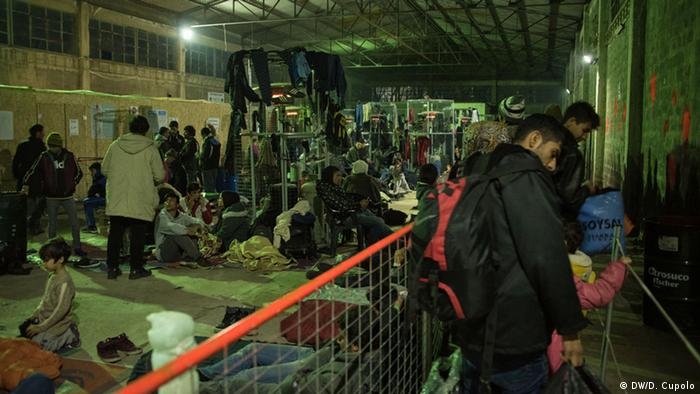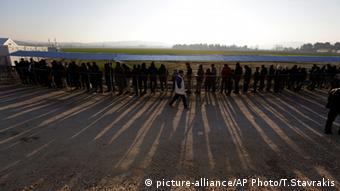Ongoing refugee crisis threatens Europe's open borders
Despite negotiations, a resolution to Europe’s refugee crisis seems as far away as ever. Within the Schengen zone interior states are blaming exterior border states, and vice-versa, amid calls to suspend Greece.
Europe's refugee crisis could soon threaten the future of the Schengen zone as the migrants continue to come, and politicians from interior and border states blame each other.
More powerful voices such as those belonging to Austria's interior ministry and the head of the International Monetary Fund (IMF) are pointing fingers at border countries, in particular Greece,demanding that more be done there to squelch the flow of refugees.
At the same time border countries, in this case Italy, are pointing fingers at interior members insisting they need to do more to take in refugees.
In addition, aid agencies are demanding closed borders be opened in order to ease the often deadly journey for the refugees.
Austria's Interior Minister Johanna Mikl-Leitner warned Saturday that Greece faced "temporary exclusion" from the EU's passport-free Schengen zone if it did not clamp down on the refugee flow.
"If the Athens government does not finally do more to secure the [EU's] external borders then one must openly discuss Greece's temporary exclusion from the Schengen zone," Mikl-Leitner said. "It is a myth that the Greco-Turkish border cannot be controlled."
IMF chief Christine Lagarde said the crisis had reached a "make or break" point, which, she said, threatened the very existence of the Schengen zone.
Extension push
A group of EU countries will push for an extension of internal Schengen border controls at a meeting of interior ministers on Monday in Amsterdam.
But in frontline country, Italy, Mario Morcone, who implements immigration policy at the interior ministry, said it is the interior member states that are failing to fulfill their obligations
"Italy is absolutely doing its part," Morcone said. "No one can ask us for concentration camps because we don't build concentration camps. Nobody should think Italy and Greece alone can resolve the problems that belong to all of Europe's 28 countries."
Finally, a primary reason so many refugees are dying at sea, crossing from Turkey to Greece, is because the land crossing between the two countries is sealed. Human rights advocates and aid workers are planning protests over the weekend demanding safe passage for the refugees,dozens more of whom have died in recent days during perilous water crossings.
Asked about the possibility of suspending Europe's Schengen passport-free travel zone, Morcone said: "No Schengen closure that you could imagine would be able to stand up to the suffering of the Syrian population, or Yazidis, or the suffering in Central or West Africa. The closure of Schengen would not stop them."
bik/jlw (AFP, Reuters, AP)



No comments:
Post a Comment